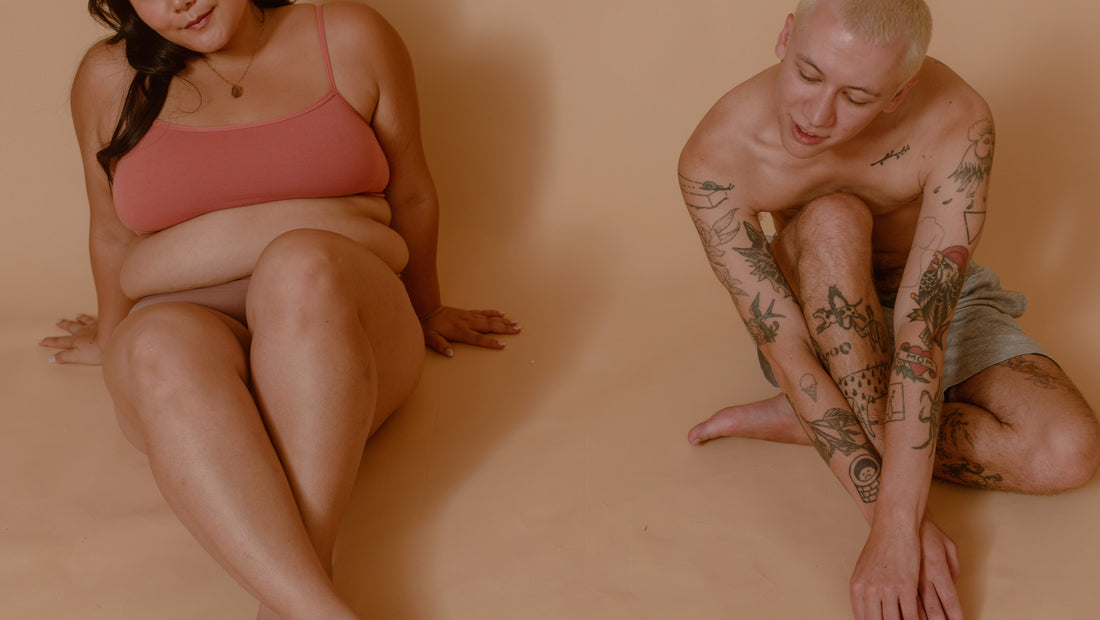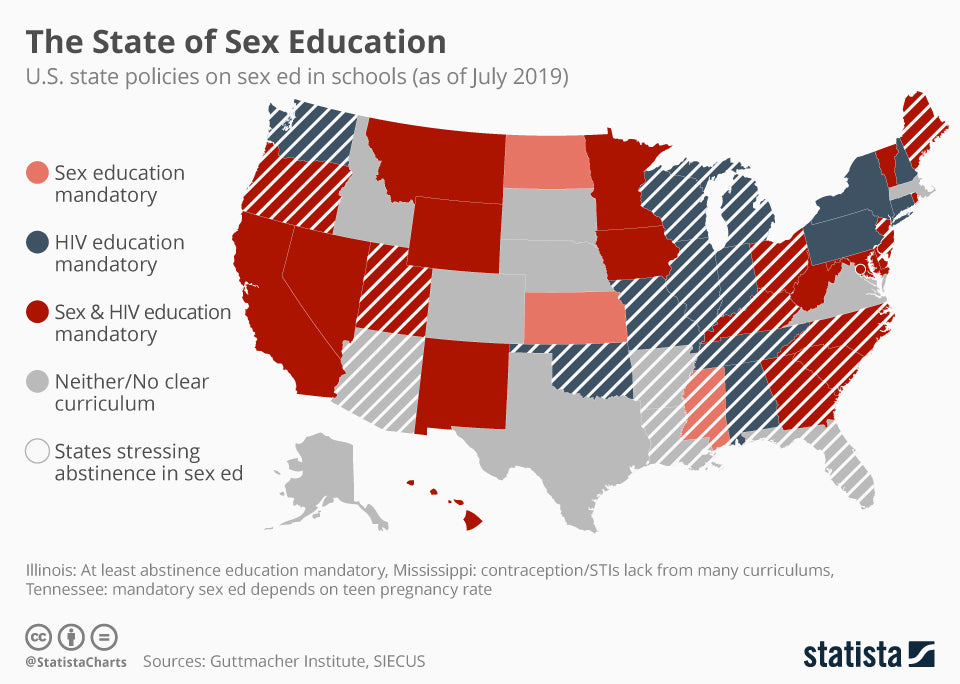
Shedding Sexual Shame After Really Bad Sex Ed
Share
words by Tatyannah King (she/her)
@taty_k_king
Sexual empowerment is an aspect of my sexual expression that I hold dear to my heart. But as I reflect on this, I notice that my journey to sexual liberation has been more of a marathon rather than a sprint. At a young age, I quickly learned that sexual empowerment can be weaponized against people with vaginas.
In the sixth grade, I was acting silly with my friends and singing Justin Timberlake’s “Sexy Back” when one of my teachers stopped me in the midst of my whimsical performance.
“Whoa. Excuse me? What did you just say?” she inquired. From the way she paused with the sternest look on her face, I assumed that one of my classmates had gotten into a verbal altercation so I looked to my left, to my right, and behind me until I realized everyone in the classroom was already staring at me with nervous looks on their faces. I looked back up at the teacher and realized she was looking at me too. Oh crap, I thought.
“Umm...I was singing Justin Timberlake’s ‘Sexy Back’ song?” I slowly responded. At that point, I looked like a deer in the headlights and started sweating.
“Do you even realize what you’re singing about? It’s being about sex and promiscuously flaunting your body. I don’t want to hear anyone singing that song in my classroom again,” she demanded.
Granted, I was only twelve years old at the time. I was goofing around with my friends and singing a catchy song. In fact, “I’m bringing sexy back (yeah)” was the only line of the song that I knew from memory. The rest was practically gibberish. Nevertheless, I noticed that a girl’s proximity to sexual consciousness was frowned upon or challenged whereas a boy’s proximity to sexual consciousness was dismissed as typical male humor because “boys will be boys.”
A girl’s proximity to sexual consciousness is frowned upon whereas a boy’s proximity to sexual consciousness was dismissed because “boys will be boys.”
This realization became more clear during the famous Sex Talk that every middle schooler was eager for. I didn’t expect much, considering I went to a religious-affiliated school in the South, but I was still excited to receive the upcoming information. Before the talk even began, the teachers split up the girls and guys. The girls received lessons about dressing modestly and abstaining from sex until marriage to remain “pure” for our husbands. Afterward, we ran to find our male peers to exchange details and the guys were practically smiling like Cheshire cats out of exhilaration from getting a candid talk about more practical topics of sexual education, like what to expect and how to have safe sex.
Because I went to a religious-affiliated private school, I figured that my sexual education experience was much worse than that of my peers who went to public schools with no religious affiliation. But based on the conversations I had with my friends who went to different schools, it turns out that the sub-par sex-education is the norm across the country.
According to research conducted by the Guttchamer Institue, only 29 states in America, including the District of Columbia, mandate that sex education is taught in some form. Nineteen states take an abstinence-only approach, stressing the importance of engaging in sexual activity only within marriage. The 17 states that require sex-ed programs to be medically accurate usually focus on anatomy, reproduction, and STIs and fail to include any information on the LGBTQ+ community. In fact, seven states teach only negative information about non-heteronormative sexual orientation. It’s not lost on me that six of the seven states are located in the Bible-belt south.

Beyond state requirements, 36 states allow parents to dismiss their children from sex-ed classes, so there’s a hefty number of young people who never recieve any formal teaching regarding sex and sexuality.
I was fed up upon finding out that so many others had similar inadequate experiences with sex-ed. The more these implicit double standards were instilled in me, the more I internalized it by repressing my sexuality. The funny thing about being sexually aware at such a young age was that I wasn’t interested in having sex, and wouldn’t engage in penetrative sex until I turned 21 years old.
But my general awareness and fascination with sexuality was still seen as a threat—not only to my “purity,” but to the deeply ingrained heteronormative patriarchal status quo and the sex-negative culture in the heavily conservative South where I lived at the time.
My general awareness and fascination with sexuality was seen as a threat—not only to my “purity,” but to the deeply ingrained heteronormative sex-negative culture.
As a young woman living in North Carolina, any curiosity and desire surrounding sexuality was automatically deemed “dirty” or “unladylike” by my teachers and leaders of the church. As I accepted the harmful rhetoric by adults who I trusted at the time, I began to reject any of that curiosity and hunger for knowledge about my sexuality and sexual expression. For years, I locked it in the back of my mind and pretended it wasn’t there. Luckily, that wouldn’t be the case forever.
Eventually, I had an epiphany and recognized the power of my sexual actualization after stumbling on a YouTube video of a famous sexologist, Dr. Jill McDevitt, recalling her experiences as a professional in the field of sexuality. Her knowledge and passion for spreading fun, positive messages about sexuality was invigorating. After watching the video, I knew that one day I wanted to become a sexologist as well.
I knew that I had to overcome this internalized shame and connect to my body as a sexual being. In doing so, I began to feel truly comfortable owning my liberation. I grew more confident with claiming my rights and asserting authority in the spaces I occupied without second-guessing myself.
I became more familiar with exploring my anatomy and discovering which spots of my vulvar structure responded to different frequencies and motions. Learning my body and understanding what I found enjoyable made my first time having penetrative sex a pleasurable experience, rather than simply going through the motions for the sake of pleasing my partner.
In a more holistic sense, my journey toward sexual empowerment translated to the way I view and treat my body as a whole. I spend more time embracing my body by looking at myself in the mirror and appreciating my curves and crevices. I hold my body in high esteem and make sure that any products that go near my vulva are made of body-safe ingredients and do my research on which lubes are compatible with the sex toys I use to avoid any irritation to my sensitive skin.
Ultimately, my sexual empowerment journey was a marathon and not a sprint, but now I feel unstoppable.
Shop Supportive aftercare products to help your sexual health journey
Related Reading
The Intersection of sexual and mental health
Mind the Pleasure Gap: Gender Inequality in the Bedroom
Learn the Difference Between Your Vagina & Vulva
The 3 Most Important Factors in All Open Relationships
Meet the Author

Tatyannah King (she/her) @taty_k_king

